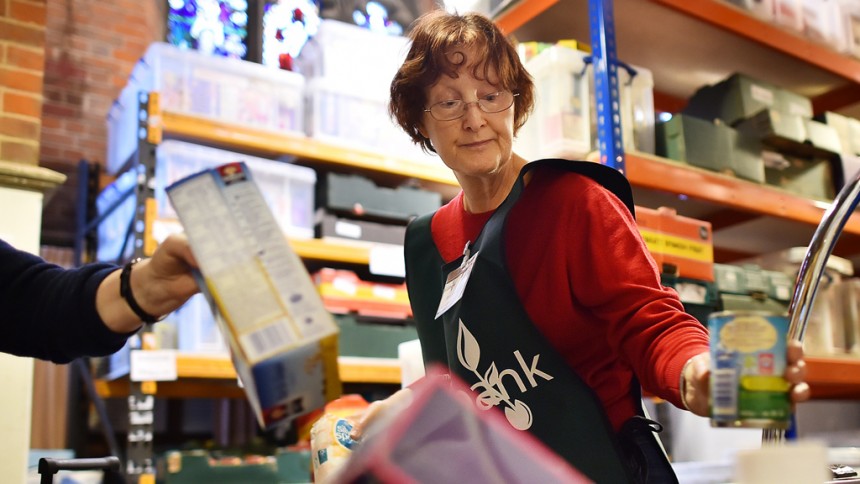Food bank use – a political hot potato
Over a million people needed free food from a food bank last year, according to the Trussell Trust, which runs Britian’s biggest food bank scheme. 400,000 were children.
A detailed breakdown reveals the same four causes as before: benefits disrupted due to to sanctions, low income, changes in benefits and debt – with those hungry because of low pay showing a marked increase.

It’s a political hot potato for the government: Conservative politicians have repeatedly criticised the Trussell Trust for “creating demand” for charity by advertising food banks’ existence. But all the major parties want to cut to the welfare bill in the next parliament.
Because inflation is flat, average pay is now actually rising – but housing costs for those at the bottom of the labour market eat into low incomes differentially.
Every one of these million stories will be different, but almost a quarter were people on a low income who went hungry when small, unexpected events disrupted their household finances.
This is the price you pay for “job creation” – many of the jobs created are insecure, temporary and part time and put those who work in them permanently in need of in-work benefits, and unable to feed themselves when the smallest thing goes wrong.

